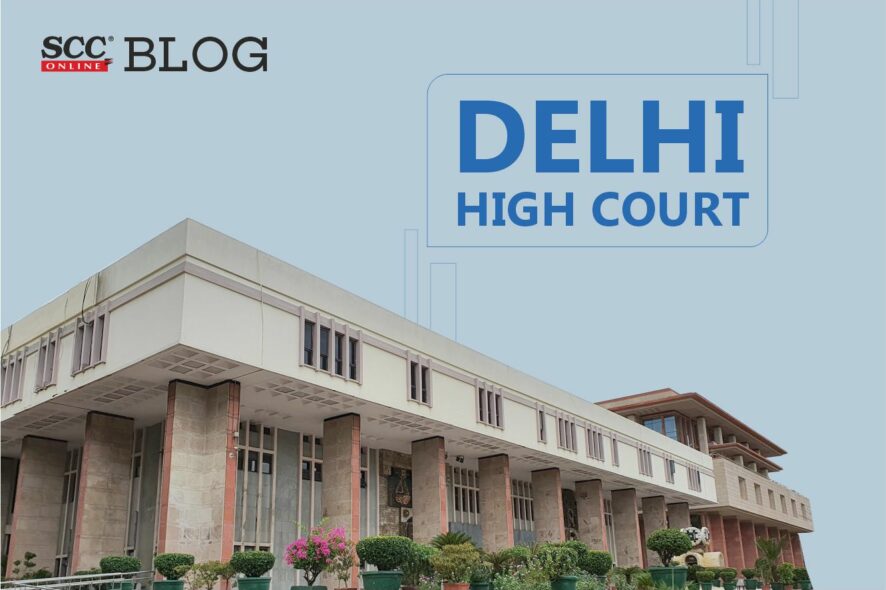Delhi High Court: In a petition filed challenging the vires of Rule 14 of Building & Other Construction Workers Welfare Cess Rules, 1998 (Rules, 1998), a Division Bench of Rajiv Shakdher and Tara Vitasta Ganju, JJ., held that that Rule 14(2)(b) of 1998 Rules is clearly beyond the powers of rule-making authority and must be struck down.
The petitioner is a Public Sector Undertaking (PSU) who has been imposed and called upon to pay the entire amount, Rs. 9,13,77,520/- which is inclusive of cess, penalties and interest, by the Assessing Authority via an order dated 07-03-2012, thus, show cause notice dated 13-02-2012 was issued. Aggrieved, the petitioner preferred an appeal and while preferring the same, did not deposit any of the amounts and thus, the appeal was dismissed by the Appellate Authority for non-compliance of the provisions of Rule 14(2) of 1998 Rules.
The core issue under consideration was whether the petitioner could have been called upon to pay 100% of cess, penalty and interest, for progressing its appeal, which was filed before the Appellate Authority?
The Court remarked that the rationale provided in the said order was that in case the petitioner was to succeed, the amounts, if any, deposited towards cess, penalties and interest, would be returned to it.
The Court noted that that the rule making authority has been given necessary powers for framing rules, under Section 14 of 1996 Act but the rule making authority cannot frame a rule, which is beyond the power conferred under the 1996 Act.
The Court further noted that on analyzing the width and scope of Section 11 of 1996 Act and making a careful perusal of the said sub-section, it becomes clear, that an appeal can be preferred under sub-section (1) of Section 11, in the form and manner prescribed only if it is accompanied by stipulated “fees” and the prescription, made in that behalf, is incorporated in Rule 14 of 1998 Rules.
The Court however, opined that the provision made in sub-clause (b) of sub-rule (2) of Rule 14 of 1998 Rules is clearly beyond the provisions of Section 11(2) of 1996 Act and the said section i.e., Section 11(2) of 1996 Act, only speaks about “fees”.
Placing reliance on Additional District Magistrate (Rev.) Delhi Admn. v. Siri Ram, (2000) 5 SCC 451, wherein it was observed that “it is a well-recognized principle of interpretation of a statute that conferment of rule-making power by an Act does not enable the rule-making authority to make a rule which travels beyond the scope of the enabling Act, or which is inconsistent therewith or repugnant thereto. From the above discussion, we have no hesitation to hold that by amending the Rules and Form P-5, the rule-making authority has exceeded the power conferred on it by the Land Reforms Act.”
Thus, the Court held Clause (b) of sub-rule (2) of Rule 14 of the 1998 Rules must be struck down for being ultra vires the provisions of Section 11 of the 1996 Act.
[MTNL v. Deputy Labour Commissioner, 2022 SCC OnLine Del 3704, decided on 31-10-2022]
Advocates who appeared in this case :
Ms Geeta Luthra, Sr. Adv. with Mr Sushil Kumar Singh, Ms Sitwat Nabi and Mr Harsh B. Nagar, Advocates for Petitioner;
Mr Prashant Manchanda, ASC with Mr Angad Singh, Mr Vaibhav, Ms Jasleen, Advs. for GNCTD/R-1. Mr Anurag Ahluwalia, CGSC with Mr Danish Faraz Khan, Adv. for R-2/UOI.
*Arunima Bose, Editorial Assistant has reported this.






